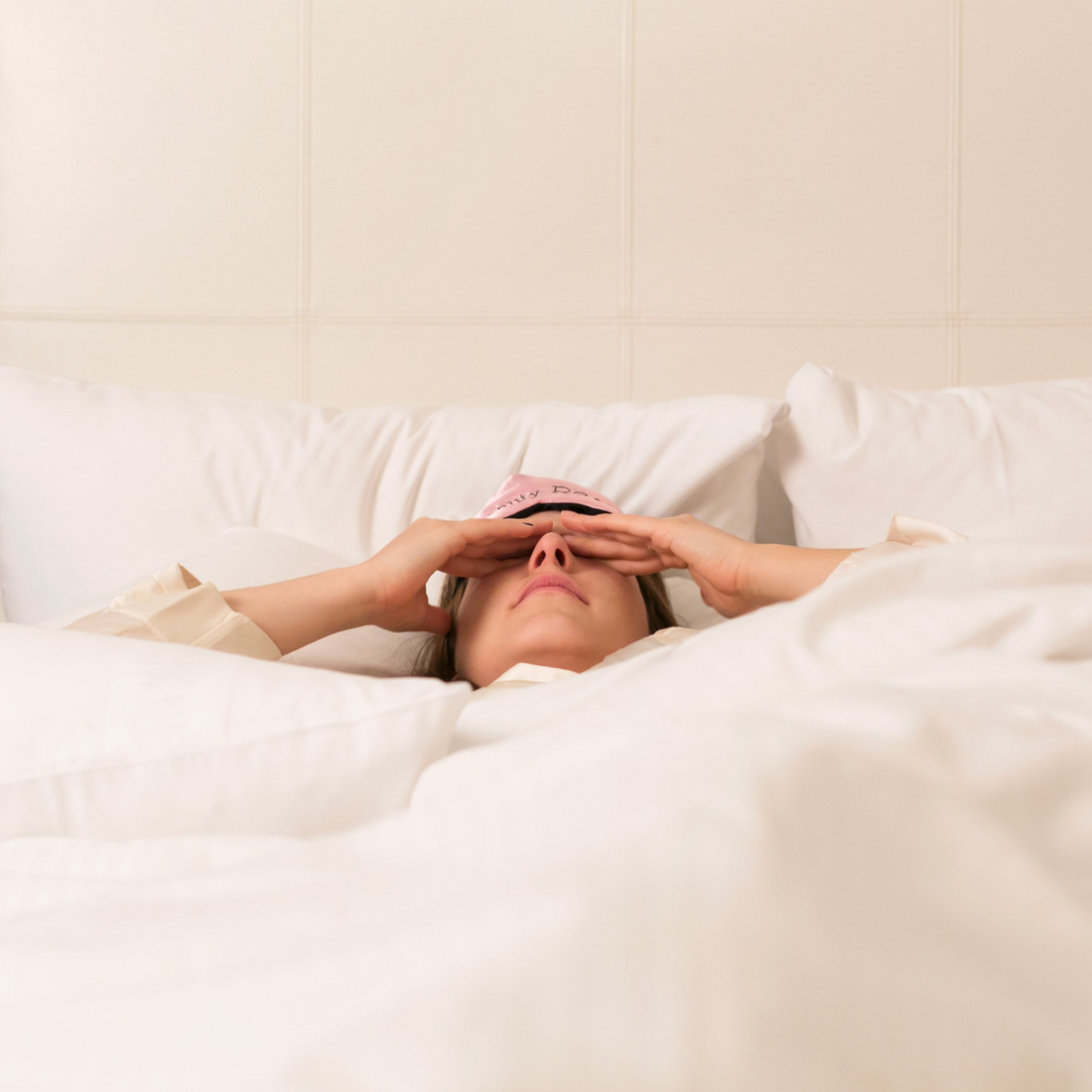
This is why you are not sleeping during the pandemic
Share

By Rayan Stanislaus
Covid-somnia. No, relax..it’s not another strain…
In 2020, neurologists came up with this term because they noticed an increase in reported sleep issues.
It makes sense; the pandemic triggered a domino effect of life-disruptions which can interfere with sleep patterns.
Rather interestingly, researched showed that there are specific groups of people who are experiencing more sleep disruptions during this pandemic than others.
That is right, while you may be up counting sheep, others may be sleeping more comfortably.
So, if you have become an insomniac, rest easy (pun intended...) you are in good company.
Keep reading to find out why some of us are not sleeping during the pandemic and why.
Who is not sleeping during the pandemic?
In 2020, a study done by the University of Southampton showed that one in four people suffered from insomnia; it was previously one in six.
According to Professor Jane Falkingham, at Southampton University, the first four weeks of the pandemic brought on more sleep-related problems than in the previous years.
However, the study also showed that mothers of young children, BAME (Black, Asian and Minority Ethnic) groups and essential workers were at higher percentages.
Another research done by the Spire Healthcare in October 2020 discovered a higher percentage of sleep issues in women.
This research found that 60% of women in the United Kingdom experienced sleep problems.
Additionally, 64% of those women were in the (18-34) age group.
So, why is this happening?
According to Public Health England, people from BAME groups are more likely to be diagnosed with Covid-19. Many Covid survivors have developed PTSD (Post-traumatic stress disorder) because of experiencing horrific and/or life threatening medical events due to the virus.
Also, a high percentage of essential workers are from the BAME group. Essential workers such as healthcare providers are dealing with extreme stressors during the pandemic. They are, after all, in full-view of the tragedies of Covid-19 and may have anxiety for contracting the disease.
In the case of women, they have been experiencing specific sleep disorders even before the pandemic due to biological and behavioural reasons, according to Dr. Ari Manuel at the Spire Healthcare.
Women and young people are employed in industries that have been negatively affected by the pandemic. Women are more likely to be employed in the medical and administrative field while young people make up most of the hospitality sector.
Many women have switched to remote working during the pandemic and for working mothers, research shows that they have taken up most of the childcare responsibilities at home.

Overall, the main causes of covid-related sleep disruption in both men and women are:
-
Routine interruption
-
No switch off from work/ irregular work hours/ increased work hours
-
Decrease in sunlight (which acts as the body’s natural alarm clock)
-
Stress and anxiety
Stress and anxiety are brought on due to the:
-
Fear of oneself and loved ones contracting the virus
-
Not seeing loved ones/ lack of a social structure
-
Uncertainty/ fear of the unknown
-
Financial and domestic problems
Do you have a sleep disorder?
According to the British sleep society, insomnia can be identified by having difficulty getting to sleep, waking up for long periods during the night or waking up earlier than necessary in the morning.
Other sleep disorders include night terrors and hypersomnia (excessive sleepiness during the day.)
If you are experiencing any of these, it is recommended that you have a chat with your GP.
What happens to us when we do not get enough sleep?
Your body can be affected negatively if you are not getting enough sleep.
Research has shown that a body’s immune system can weaken due to lack of sleep. Apart from a weakened immunity, lack of sleep can also cause:
-
Extreme daytime sleepiness
-
Anncreased likelihood for motor accidents
-
Moodiness and irritability
-
Lack of alertness
-
Impaired memory
-
Inability to perform normal daily activities
The price of sleep
People are desperately seeking out products that can help them sleep better at night.
Products such as ‘sleep boxes,’ contain oils and teas that may cost you over £50. However, there is not much guarantee of their efficiency.
The sales of sleeping gadgets are also on the rise and though they may occasionally aid in minor sleep disturbances, there is not much research done to show that they improve sleep in the long-term.
These gadgets can cost between £70-£200.
People are also trying their own ‘at-home’ remedies such as alcohol. It was reported that last year saw an increase in alcohol sales and consumption in the UK.
Although it is assumed that alcohol can aid in facilitating peaceful sleep, it can actually disrupt the process.
Furthermore, using alcohol as a sleeping aid can lead to alcohol addiction and this can trigger much bigger problems for the user.
According to Neurology Today, there is also an increase in the reported misuse of sleep medications from those both recovering from Covid-19 and those who are severely affected by the pandemic.
Again, chronic sleep disorders can only be treated by medical professionals and it is vital to seek out help if you believe you or someone is experiencing one.
On the other hand, if you do not consider yourself to have a severe sleeping disorder and you are just experiencing minor sleep disturbances, you can try some safe and cost-effective home remedies.
It’s worth trying a weighted blanket

People are switching to weighted blankets to help them with many issues such as stress and anxiety. According to Harvard Health Publishing, there has been an increase in the sales of weighted blankets over the past few years.
There is research that proves that weighted blankets reduce stress and anxiety which enhances the chances of peaceful sleep.
One study was done in September 2020 in Sweden. Researchers found that psychiatric patients with insomnia experienced a reduction in its severity and day-time sleepiness when using a weighted blanket.
Weighted blankets work through a process called Deep Pressure Therapy. It has been long proven that some babies fall asleep easier when they are wrapped up tightly in their blanket. Weighted blankets work in the same way as they apply pressure to the entire body.
The weighted blanket stimulates the nervous system to release ‘happy hormones’ such as oxytocin, dopamine and serotonin.
When serotonin is released, the ‘sleep hormone,’melatonin is also released, therefore encouraging sleepiness and calmness.
Aside from its proven efficiency, you can find weighted blankets that are low-cost here, you can even get them custom-made with amazing textures and designs.
We all deserve a good night’s rest and there is a chance that you can rest easy when using a weighted blanket.
Peaceful sleep can also enhance your immune system and improve your overall well-being. Rest is one of nature’s best medicine, after all.
Additional Links:
British Sleep Society
https://www.sleepsociety.org.uk/
Public Health England
https://assets.publishing.service.gov.uk/government/uploads/system/uploads/attachment_data/file/908434/Disparities_in_the_risk_and_outcomes_of_COVID_August_2020_update.pdf
Harvard Medical School
Neurology Today
https://journals.lww.com/neurotodayonline/fulltext/2020/07090/sleep_neurologists_call_it.1.aspx
Spire Healthcare
University of South Hampton
https://www.southampton.ac.uk/news/2020/08/sleeploss-lockdown.page
